Medals from the
Red Cross Organizations
Red Cross Badges, Medals & Awards from World War I, World War II, and more.
Since the creation of the International Committee of the Red Cross in 1863, the organization has helped people affected by conflict and armed violence. The movement is the largest humanitarian network in the world, and its mission is to alleviate human suffering, protect life and health, and uphold human dignity.
This page contains a collection of Red Cross medals. You can get more details about each of them by clicking on the images or names. If you’d like to know more about the history of the institution and how each of these medals and awards was created, please take a look at our related Article: The History of Red Cross Medals, Badges and Awards.
Popular Red Cross Medals and Orders
Whether it’s providing emergency medical care, disaster response, blood donation drives, or community outreach programs, Red Cross volunteers play a vital role in delivering lifesaving assistance to vulnerable populations around the world. Explore the most popular Red Cross medals below.
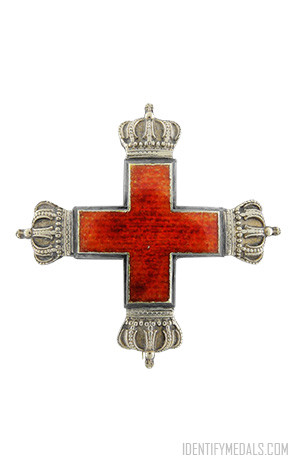
The Prussian Red Cross Medal
The Red Cross Medal was set up in 1898 by Emperor Wilhelm II and awarded to those who did great service to the sick in peace or wartime.
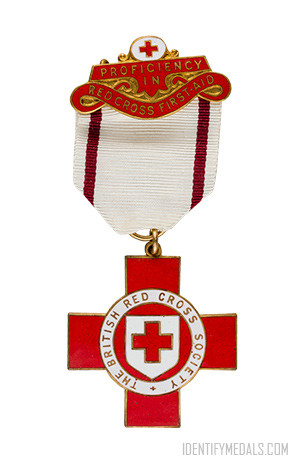
The British Red Cross Medal for Proficiency
Members of the Red Cross had to have three successive certificates in appropriate subjects (nursing, first aid, hygiene and sanitation).
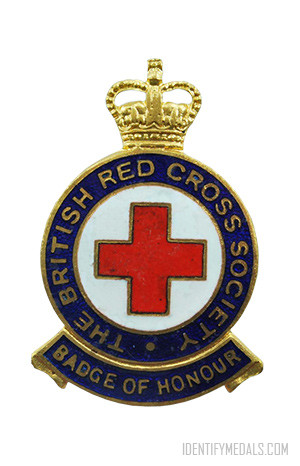
The British Red Cross Badge of Honor
The British Red Cross Badge of Honor was instituted in 1958 and given to people who show exceptional service to the British Red Cross.
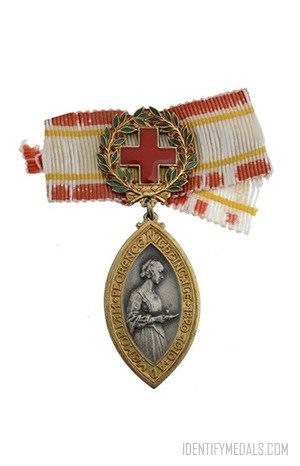
The Florence Nightingale Medal
The Florence Nightingale Medal was instituted in 1912 by the Red Cross as the highest distinction a nurse can achieve.
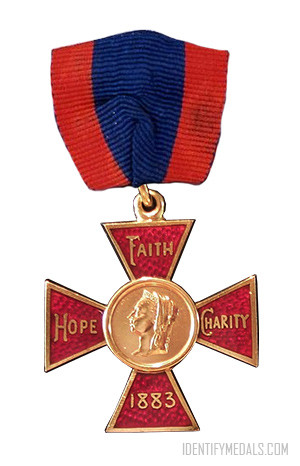
The Royal Red Cross
The Royal Red Cross is a military decoration established by Queen Victoria and awarded for exceptional services in military nursing.
The Story of Edith Cavell
During World War I, a Red Cross nurse named Edith Cavell became a symbol of courage and compassion. Despite the dangers, she tended to wounded soldiers from both sides of the conflict. Eventually, she was captured by German forces for aiding Allied soldiers to escape. Despite international outcry, she was executed by firing squad in 1915.
Her selflessness and sacrifice earned her worldwide recognition and made her a martyr for the cause of humanity. Edith Cavell did not receive a Red Cross medal. She was, however, awarded the Order of the British Empire (OBE) posthumously for her bravery and humanitarian efforts during World War I.
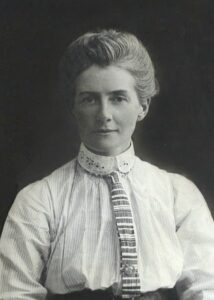
Why Did the Red Cross Award Medals?
The Red Cross movement is a global network of organizations and societies dedicated to humanitarian aid and disaster relief. With branches and chapters in nearly every country, these organizations work tirelessly to alleviate human suffering and promote the principles of humanity, impartiality, neutrality, independence, voluntary service, unity, and universality.
Many of these Red Cross organizations have established their own medal systems to honor volunteers for meritorious service and to recognize individuals who have made significant contributions to the Red Cross movement. These medals serve as symbols of gratitude and appreciation for the selfless dedication and sacrifice of volunteers and supporters who work tirelessly to uphold the humanitarian ideals of the Red Cross
All of the Red Cross Medals
The Red Cross, with its long history of humanitarian service, has various medals and awards that recognize individuals who have demonstrated exceptional dedication, courage, and compassion in the face of adversity. These medals honor the contributions of volunteers, staff, and supporters who have made significant impacts on humanitarian aid efforts around the world. Here’s an overview of some of the most prominent Red Cross medals:
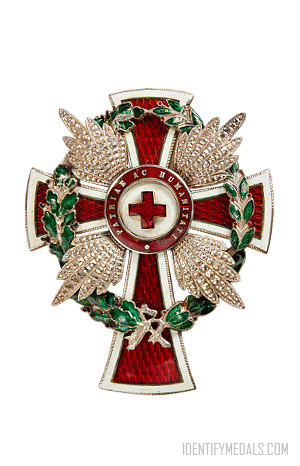
The Austrian Decoration for Services to the Red Cross
The Decoration for Services to the Red Cross was an award instituted in 1914 to mark the 50th anniversary of the Geneva Convention.
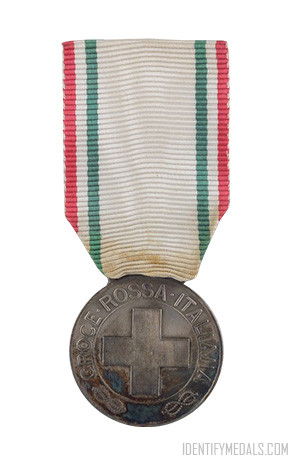
The Italian Red Cross Medal of Merit
The Italian Red Cross Medal of Merit (Al merito della Croce Rossa) is an Italian award established in 1913 and awarded in three grades.
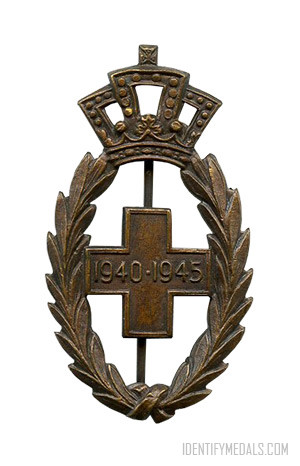
The 1940-1945 Belgian Red Cross Decoration
The 1940-1945 Belgian Red Cross Decoration (Décoration de la Croix Rouge Belge 1940–1945 / Ereteken van het Belgische Rode Kruis 1940–1945).
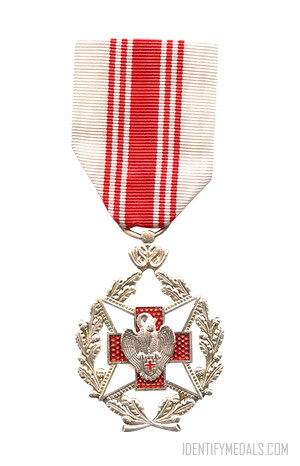
The Blood Donor’s Medal
The Blood Donor’s Medal (Médaille de Donneur de Sang / Bloeddonor Medaille) is a Red Cross Belgian medal awarded for blood donations.
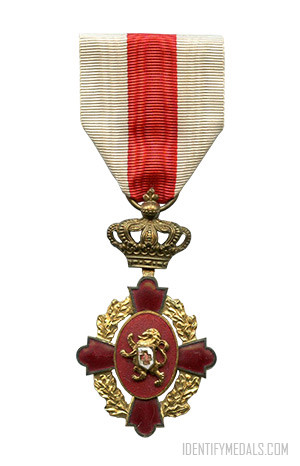
The Order of the Belgian Red Cross
The Order of the Belgian Red Cross (Ordre de la Croix Rouge Belge / Orde van het Belgische Rode Kruis) was established in 1880.

The Prussian Red Cross Medal
The Red Cross Medal was set up in 1898 by Emperor Wilhelm II and awarded to those who did great service to the sick in peace or wartime.
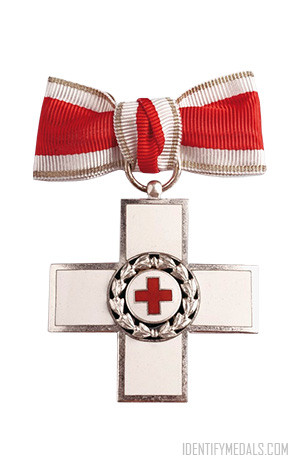
The German Red Cross Decoration
The German Red Cross Decoration (or “Ehrenzeichen des Deutschen Roten Kreuzes” in German) is a decoration founded in 1922.
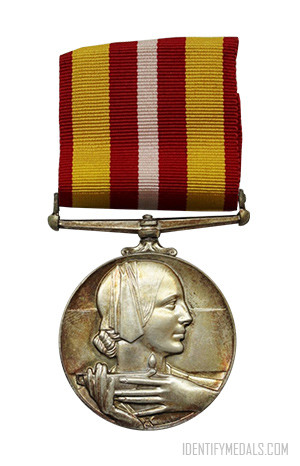
The Voluntary Medical Service Medal
The Voluntary Medical Service Medal is a medal instituted in 1932 by George V and awarded by the British Red Cross and St Andrew’s First Aid.

The British Red Cross Medal for Proficiency
Members of the Red Cross had to have three successive certificates in appropriate subjects (nursing, first aid, hygiene and sanitation).
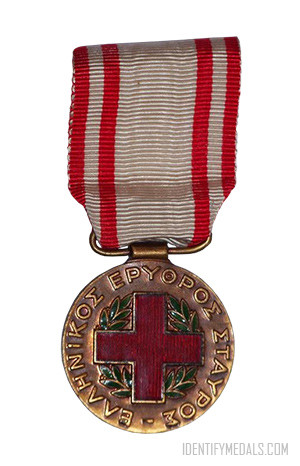
The Medal of the Hellenic Red Cross
The Medal of the Hellenic Red Cross is medal for service in the ranks during the Italian invasion in 1940 until the Capitulation of Greece.
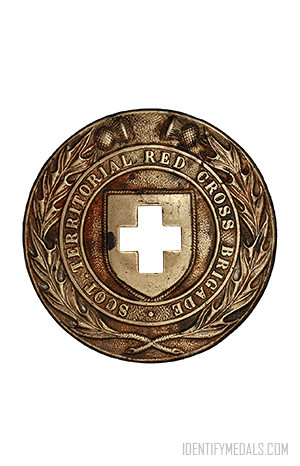
The Scottish Territorial Red Cross Brigade Badge
The Scottish Territorial Red Cross Brigade Badge is a WW1 cap badge made in brass-metal with a red felt backing to the central Geneva Cross.

The British Red Cross Badge of Honor
The British Red Cross Badge of Honor was instituted in 1958 and given to people who show exceptional service to the British Red Cross.
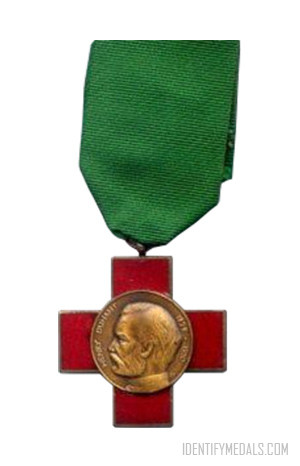
The Henry Dunant Medal
The Henry Dunant Medal is the highest award of the Red Cross. It was created in 1963 and named after the founder of the Red Cross Movement.

The Florence Nightingale Medal
The Florence Nightingale Medal was instituted in 1912 by the Red Cross as the highest distinction a nurse can achieve.

The Royal Red Cross
The Royal Red Cross is a military decoration established by Queen Victoria and awarded for exceptional services in military nursing.
